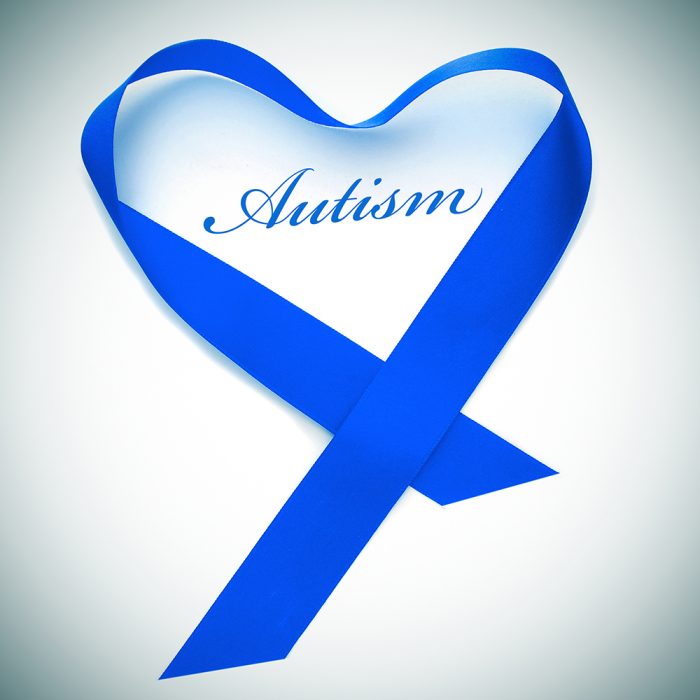Office of Vocational Rehabilitation and Bureau of Special Education Memorandum of Understanding

Shannon Austin, MS, Executive Director of Office of Vocational Rehabilitation (OVR) and Carole L. Clancy, Bureau Director of Special Education have announced completion of a revised Memorandum of Understanding (MOU). The revision of the MOU is a product of ongoing collaboration between both agencies to strengthen agency partnership and enhance transition outcomes for students with disabilities in the Commonwealth.
Additionally, there will be a series of webinars in April and May: Understanding the Memorandum: OVR and BSE Working Together as One. This series will overview the MOU agreement between OVR and the Bureau of Special Education (BSE), pertaining to the provision of transition services for students with disabilities. Throughout the series, participants will be introduced to tools for collaboration between OVR, BSE, Local Education Agencies (LEAs), youth, and families.
Adult Autism Waiver Renewal Public Comment Webinar Recording
ODP Announcement 21-028 is to inform all interested parties of the availability of the recording of the March 16, 2021 public comment webinar regarding the proposed changes to Appendices A through H of the Adult Autism Waiver (AAW) renewal.
The webinar is now available online along with the PowerPoint presentation. You may find this link on MyODP.org by following this path: Resources > ODP Information > Waiver Renewals & Amendments > 2021 – Proposed Waiver Renewal for the Adult Autism Waiver.
Appendices A through H of the proposed renewal are available at this link.
Special Offering for Nonprofits Serving People with IDD
Grantmakers of Western Pennsylvania and Dentons Cohen & Grigsby are pleased to announce a three-part online series designed for organizations serving individuals with intellectual/developmental disabilities underwritten by The Edith L. Trees Charitable Trust.
SESSION 1. Tuesday, April 13: 9:30 am – 10:30 am
The Road Ahead for Nonprofits serving Individuals with intellectual/ developmental disabilities: A lively conversation with Ken Berger and Kate Dewey. Open to all nonprofits serving individuals with intellectual and developmental disabilities. No one can predict the future, nor can we control what happens. We can only try to anticipate the changes afoot and prepare accordingly. This will be an interactive session where the audience is also a great asset in identifying the trends to watch.
SESSION 2. Tuesday, April 20: 9:00 am – 1:00 pm
Disruption Got You “Stuck”? Come learn more about the Innovation Process. An educational session on the Innovation Process. *Registration is limited to Organizations in Southwestern Pennsylvania serving individuals with intellectual and developmental disabilities. Teams of two or more individuals from the same organization will be given preference. The total number of slots will be limited to 100 – you will be notified if you are wait-listed.
SESSION 3. May – July 2021
Innovation Learning Cohort Only agencies that participate in the April 20 educational seminar with Matt Prostko are eligible to apply. Five nonprofit agencies located in Southwestern Pennsylvania will be selected through a competitive application process to participate in a more intensive applied learning process. Each organization will be assigned a trained innovation coach to create a specific approach to address a pain point, refinement, or new opportunity.
Virtual Mandated Reporter Training at No Cost to Mandated Reporters in PA
This three–hour virtual training is approved by the Departments of Human Services, Education, and State and meets all requirements for training on recognizing and reporting child abuse (to include Act 126 for school employees). It is also approved for continuing education credits under Act 31 (Department of State for health–related licenses) and Act 48 (Department of Education for teachers) at no cost. PFSA will submit your training verification to the Department of State or Education as appropriate on your behalf (details provided during training).
Each person must log in through separate devices, using the unique access link emailed to them after registration to receive credit. Please register for your preferred training date and time by clicking one of the session links below. For questions, or to schedule a session specifically for your organization, please email PFSA.
April 2021
Thurs. April 1st 9am-12pm Fri. April 16th 9am-12pm
Thurs. April 1st 1-4pm Sat. April 17th 9am-12pm
Mon. April 5th 1-4pm Mon. April 19th 1-4pm
Tues. April 6th 9am-12pm Tues. April 20th 9am-12pm
Tues. April 6th 1-4pm Tues. April 20th 1-4pm
Wed. April 7th 9am-12pm Wed. April 21st 9am-12pm
Wed. April 7th 1-4pm Wed. April 21st 1-4pm
Wed. April 7th 6pm-9pm Thurs. April 22nd 1-4pm
Thurs. April 8th 9am-12pm Fri. April 23rd 9am-12pm
Thurs. April 8th 1-4pm Mon. April 26th 9am-12pm
Fri. April 9th 9am-12pm Tues. April 27th 9am-12pm
Mon. April 12th 1-4pm Tues. April 27th 1-4pm
Tues. April 13th 9am-12pm Tues. April 27th 6pm-9pm
Tues. April 13th 1-4pm Wed. April 28th 9am-12pm
Wed. April 14th 9am-12pm Wed. April 28th 1-4pm
Wed. April 14th 1-4pm Thurs. April 29th 9am-12pm
If you have any questions, please contact Jim Sharp at RCPA.
DDAP Defines ASAM “Initial Alignment” as July 1 Deadline Nears
In a meeting on March 18, 2021 the Department of Drug and Alcohol Programs (DDAP) met with the behavioral health managed care organizations (MCOs) and HealthChoices primary contractors to discuss its expectations of providers’ initial alignment with DDAP’s mandates that are part of the ASAM transition. The deadline for providers to align their services with ASAM services at each level of care is July 1. In part, the purpose of the meeting was to stress to the MCOs and primary contractors that ASAM alignment is a continuous process, not a date to be met, and alignment is not an all-or-nothing proposition. Rather, DDAP is seeking substantial compliance with the criteria and does not expect payers to be punitive in their audits of providers’ alignment with ASAM.
This document defines “Initial Alignment” at each level of care. Per the document, at Levels 2.5 and 3.7, “DDAP will document initial alignment for licensed facilities.” RCPA sought clarification on this point.
According to DDAP, at those levels of care, during a provider’s first audit after July 1, DDAP will be looking for “substantial” alignment. What constitutes “substantial” alignment, what happens if DDAP determines substantial alignment has not occurred, and how other audits by other regulators and payers will be conducted relative to the determination of “substantial” alignment are still being determined.
In addition, RCPA continues to work with DDAP, the Department of Human Services/Office of Mental Health and Substance Abuse Services, MCOs, the legislature, and the governor’s office, among other key stakeholders, to illustrate the challenges this transition is placing on providers, the potential consequences, and workable solutions for providers. RCPA will make an in-depth presentation of its efforts to date and plans going forward at the Tuesday, April 6 Drug and Alcohol Committee meeting.
Please contact Jason Snyder with any questions or concerns.
What’s the Big Deal About Trauma?
Registration is required for this FREE event:
Thursday, April 22, 2021 from 2:30 pm to 4:00 pm
PA Care Partnership is offering a free webinar: What’s the Big Deal about Trauma? Many organizations today are under a lot of pressure to become trauma-informed. Both professionals and parents are hearing about the importance of recognizing – as well as preventing – trauma from happening to the children in their lives. These demands can be a source of confusion: what does being trauma-informed mean? Why is it so important? What is trauma about, anyway?
You are invited to attend this webinar, which will feature Dr. Sandra Bloom, author of Creating Sanctuary: Toward the Evolution of Sane Societies, and Diane Wagenhals, Program Director for the Lakeside Global Institute. Together, they will describe what history and science have taught us about the nature of trauma, what becoming trauma-informed and trauma-responsive means, and why it is such a big deal.
Learning Objectives:
- Define trauma and its impact, why it is such a big deal;
- Describe the causes and neurobiological underpinnings of trauma; and
- Explain what being trauma-informed means for organizations and individuals.
Calls Grow For April To Be Designated ‘Autism Acceptance Month’
RCPA Telehealth Update & Resources
As organizations continue the practice of telehealth, outcomes continue to support telehealth utilization and expansion, as well as the development of resources and guidance. In the coming weeks, RCPA will release the results of its recent telehealth member survey as a follow up to the original RCPA Telehealth Survey Overview in 2020. This updated initiative, in partner with Woods Services, takes a deeper look into the intersects of service delivery, funding, and satisfaction metrics. This new RCPA Telehealth overview will be available the week of March 29, 2021.
The Department of Health and Human Services recently shared a new best practice guide on telehealth for behavioral health care. Behavioral health – like other areas of health care – has changed significantly due to the COVID-19 public health emergency. It is now easier for mental health providers to offer and be reimbursed for telebehavioral health services. Telehealth can also make behavioral health services safer, more private, and convenient for patients who can access care from their home. Find resources in the telebehavioral health best practice guide on getting started, developing a strategy, billing, preparing patients, and more.
Additionally, in response to the increased use and expanded coverage of telehealth during the COVID-19 pandemic, CMS’s From Coverage to Care (C2C) released two new resources to support providers and patients in making the most of virtual care:
- Telehealth for Providers: What You Need to Know – Providers can learn how and when to use telehealth. Topics include how to set up telehealth services, how to conduct a successful visit, and how to keep up to date on telehealth payment (particularly for Medicare and Medicaid).
- Telehealth: What to Know for Your Family – Patients can find out the types of care they can receive through telehealth, how to prepare for an appointment, what to expect during a visit, and more. This resource is also available in Spanish.
Providers and partners can download graphics to post on their social media channels and help spread the word about these new resources. All of these resources can be downloaded at go.cms.gov/c2ctelehealth.
If you have feedback or questions regarding your organization and telehealth, please contact RCPA Policy Director Jim Sharp.
Gov. Wolf To Nominate Meg Snead To Serve As Secretary Of Human Services
Governor Wolf announced his intention yesterday to nominate Meg Snead to be the next Secretary of the Department of Human Services (DHS). RCPA President/CEO Richard Edley remarked, “With Ms. Snead’s broad, extensive background in the human services community, we are confident that positive change will continue, in our mutual goals towards serving the most vulnerable residents of our Commonwealth. RCPA has worked with Ms. Snead in the past on several key issues and we look forward to continuing this collaboration with her in this new role as Secretary.” View the official press release.
















